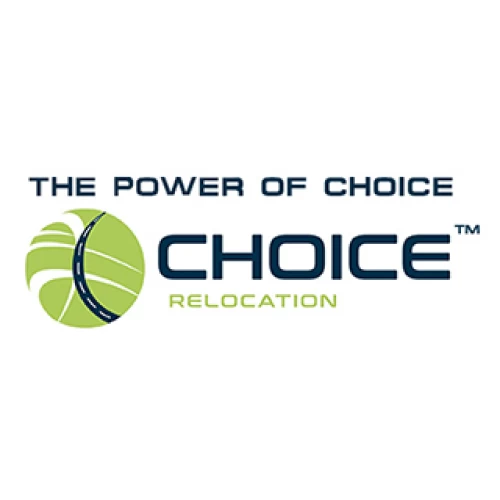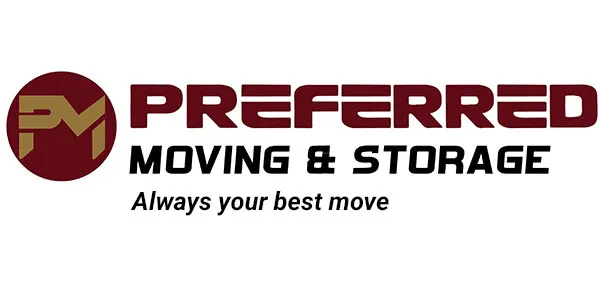($788 to $1,883) Boston to Portland Movers
Quick answer: The average cost of moving from Boston to Portland ranges from $1,883 to $12,271 but can be as low as $788 . The cost will vary according to the amount of stuff you are moving, your moving date, and the services you get from the movers.
For an immediate price estimate, you can use our moving cost calculator .

Why Trust My Good Movers?
Only licensed and insured movers
Real customer reviews & ratings
Get quotes directly from Movers
Nationwide city & route coverage
The Best Boston to Portland Full-Service Movers
Explore More Verified Moving Companies from Boston to Portland
If you're looking to explore additional moving companies from Boston to Portland, check out our extended list below. These options will help you find the perfect mover for your needs.
Here are the moving companies serving Boston to Portland.

Stairhopper Movers
-
 Verified By MGM
Verified By MGM

Stairhopper Movers
 Verified By MGM
Verified By MGM

Choice Relocation
-
-
 Verified By MGM
Verified By MGM

Choice Relocation
 Verified By MGM
Verified By MGM

First National Van Lines
-
-

First National Van Lines

CubeSmart
-
-
 Verified By MGM
Verified By MGM

CubeSmart
 Verified By MGM
Verified By MGM

Preferred Movers MA
-
-
 Verified By MGM
Verified By MGM

Preferred Movers MA
 Verified By MGM
Verified By MGM

California Movers Local & Long Distance Company
-
-
 Verified By MGM
Verified By MGM

California Movers Local & Long Distance Company
 Verified By MGM
Verified By MGM
How Much Does It Cost To Move From Boston to Portland?
We have calculated the average cost of moving from Boston to Portland by reviewing this route's moving reviews . The moving cost from Boston to Portland ranges from $1,883 to $12,271. This is a rough estimate for an average distance of 3,088 miles between both cities.
| Move Size | Average Cost |
|---|---|
| Studio / 1 bedroom | $1,883 - $8,466 |
| 2 - 3 bedrooms | $5,815 - $12,271 |
| 4+ bedrooms | $11,062 - $19,205 |
Note: These price ranges are general estimates based on a distance of 3,088 miles and past averages. Your final cost may vary depending on the size of your move, any extra services needed, parking access for the truck, market conditions, and overall availability.
Factors Affecting the Cost of Moving From Boston to Portland
There are many factors that influence the final moving costs. The cost to move from Boston to Portland will depend on these factors:
-
Distance: The moving cost is directly proportional to the distance movers are required to cover, considering the fuel and labor costs.
-
Timeline: The date and time of your move affect the moving cost. Movers charge more for moving on weekends and summers.
-
Move size and weight: The weight and number of items you plan to relocate influence the final cost. Moving a four-bedroom house and heavy items like a pool table will cost more.
-
Extra Services: Extra services like vehicle transport, packing , unpacking, furniture assembly and disassembly increase the moving cost.
-
Transport Method: Your mode of transport will affect the final cost. You can transport your belongings by road or by air. Air freight will cost more than road transport.
Who Regulates Movers from Boston to Portland?
Long Distance Moving Companies must register with the Federal Motor Carrier Safety Administration (FMCSA) to obtain a valid DOT license . You can check for a mover's license on the FMCSA website.
Agency: United States Department of Transportation (USDOT)
Website: www.fmcsa.dot.gov/
What to Know Before Moving from Boston to Portland
Going on a move from Boston to Portland? Here's a detailed comparison to help you understand the differences and make an informed decision.
Cost of Living: Boston vs. Portland
| Category | Boston | Portland |
|---|---|---|
| Average rent cost | $3,400 | $1,530 |
| Average home value | $739,121 | $522,596 |
| Average income (per capita) | $89,212 | $85,876 |
| Cost of living (single person) | $4,820 | $2,572 |
| Cost of living (family of 4) | $11,304 | $6,077 |
| Unemployment rate | 6.20% | 6.90% |
| Sales tax | 6.25% | 0.00% |
| State income tax | 9.00% | 9.90% |
Key Takeaways:
-
Housing Costs: Rent and home prices can vary significantly between cities. Always compare housing expenses before relocating.
-
Income: Differences in per capita income may help offset cost of living changes, but it's important to assess your earning potential in the new city.
-
Taxes: Sales and income tax rates can affect your overall cost of living. Consider how tax structures might impact your budget.
Lifestyle Differences: Boston vs. Portland
| Aspect | Boston | Portland |
|---|---|---|
| Population | 675,647 | 652,503 |
| AllTransit Transportation Performance Score | 9 | 8 |
| Walkability score | 98 | 81 |
| Bike friendliness score | 86 | 92 |
| Crime Index | 39.88 | 57.37 |
| Safety Index | 60.12 | 42.63 |
| Air Quality | Good | Good |
Key Takeaways:
-
Climate: Seasonal temperatures and weather patterns can vary between cities. Check how differences in summer heat or winter cold might affect your lifestyle.
-
Precipitation: Rainfall and snowfall levels may impact transportation, outdoor activities, and housing choices.
-
Safety: Crime rates are an important factor in evaluating overall quality of life. Always compare safety data to make informed decisions.
Pros and Cons:
Boston vs.
Portland
Pros
of Living in
Boston
Cons
of Living in
Boston
Leading hub for education, healthcare, finance, and tech
High cost of living and expensive housing
Rich history and vibrant cultural scene
Traffic congestion in some areas
Excellent public transportation system
Cold, snowy winters
Walkable neighborhoods with diverse dining and entertainment
Competitive job market
Pros
of Living in
Portland
Cons
of Living in
Portland
Scenic nature and outdoor access
High housing costs
Artsy, eco-friendly culture
Rainy, gray weather
Walkable with good public transit
Homelessness concerns
Frequently Asked Questions
(FAQs)
The drive from
Boston to Portland
covers
approximately 3,088
miles. Travel time can vary
depending on factors like traffic, weather, and time of day.
Refer
to the route map below for a detailed overview of the drive.
Generally, the most cost-effective
travel options from
Boston to Portland are
buses
or trains. Intercity bus services and rail providers offer
competitive fares. Booking in advance and traveling during
off-peak
times can help save even more.
Direct public transportation varies by route. In many cases,
travelers may need to make transfers via regional rail, bus
networks, or local transit systems to reach their destination
efficiently.
Toll costs depend on the highways and bridges/tunnels used.
Expect to
encounter tolls on major interstates or turnpikes. Using an
electronic toll pass (like E-Z Pass) can streamline the process
and
may offer discounted rates.
Parking can be limited and expensive in densely populated or
urban
areas. Some neighborhoods require residential parking permits.
If
you're relocating, check local parking regulations ahead of time
and
consider garage rentals or public transportation as
alternatives.
Helpful resources
Boston moving services
Popular Boston routes
Plan Your Long-Distance Move with Confidence
Need help? Get free quotes from licensed interstate movers or call our support team anytime.
| Pros of Living in Boston | Cons of Living in Boston |
|---|---|
| Leading hub for education, healthcare, finance, and tech | High cost of living and expensive housing |
| Rich history and vibrant cultural scene | Traffic congestion in some areas |
| Excellent public transportation system | Cold, snowy winters |
| Walkable neighborhoods with diverse dining and entertainment | Competitive job market |
| Pros of Living in Portland | Cons of Living in Portland |
|---|---|
| Scenic nature and outdoor access | High housing costs |
| Artsy, eco-friendly culture | Rainy, gray weather |
| Walkable with good public transit | Homelessness concerns |
Frequently Asked Questions (FAQs)
The drive from Boston to Portland covers approximately 3,088 miles. Travel time can vary depending on factors like traffic, weather, and time of day. Refer to the route map below for a detailed overview of the drive.
Generally, the most cost-effective travel options from Boston to Portland are buses or trains. Intercity bus services and rail providers offer competitive fares. Booking in advance and traveling during off-peak times can help save even more.
Direct public transportation varies by route. In many cases, travelers may need to make transfers via regional rail, bus networks, or local transit systems to reach their destination efficiently.
Toll costs depend on the highways and bridges/tunnels used. Expect to encounter tolls on major interstates or turnpikes. Using an electronic toll pass (like E-Z Pass) can streamline the process and may offer discounted rates.
Parking can be limited and expensive in densely populated or urban areas. Some neighborhoods require residential parking permits. If you're relocating, check local parking regulations ahead of time and consider garage rentals or public transportation as alternatives.
Helpful resources
Boston moving services
Popular Boston routes
Plan Your Long-Distance Move with Confidence
Need help? Get free quotes from licensed interstate movers or call our support team anytime.






 (239) 799–6077
(239) 799–6077